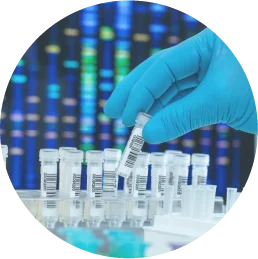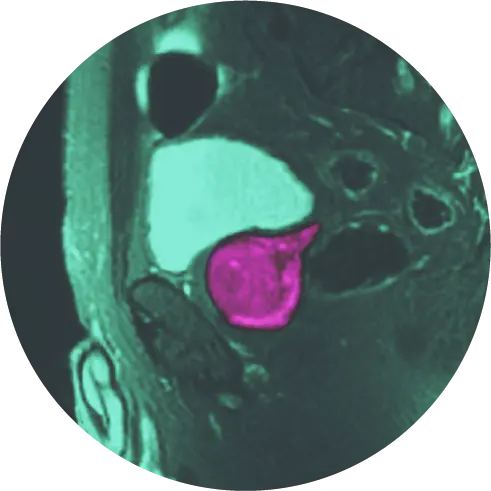Treating prostate cancer can be a long, grueling road, and making it to the other side is an accomplishment worth celebrating. However, the fight against prostate cancer doesn’t end immediately after treatment. Some people may have long-term physical or emotional side effects. Many people worry about the cancer coming back or “recurring.” Some estimates find that 20-30% of survivors will experience recurrence.1 Fear and anxiety about recurrence are natural, but working with your doctor to create a follow-up care plan to monitor your health can help alleviate some of that worry. There is no one-size-fits-all approach to monitoring your health after prostate cancer treatment, and your doctor will work with you to determine the best plan for your lifestyle.
PSA Screening
Prostate-specific antigen (PSA) tests can be used for both prostate cancer diagnosis and monitoring after treatment. Elevated PSA levels after treatment may be an early sign of cancer recurrence.2 The National Comprehensive Cancer Network recommends PSA tests every six to twelve months for the first five years after treatment. If these results are normal, your doctor may reduce the screening frequency to once a year thereafter.3
What Happens if my Prostate Cancer Comes Back?
Waiting for results from a PSA screening can be scary, and if a test comes back with a concerning outcome, it’s easy to panic. However, elevated PSA levels do not necessarily mean that the cancer has returned.2 Your doctor may recommend additional testing to confirm the results. If further tests determine that the cancer has recurred, there are many follow-up treatment options available. Some of these include hormone therapy, cryotherapy, or radiation therapy. Some doctors may recommend “watchful waiting” or active surveillance instead of active treatment.4 Prostate cancer is often slow-growing, so active surveillance is sometimes recommended.
Is There Anything I can do to Prevent Recurrence?
Besides routine PSA screenings, your doctor may suggest additional lifestyle changes after prostate cancer treatment to help prevent recurrence. For example, regularly exercising and trying to incorporate more vigorous exercise into your routine can be beneficial. Adjusting your diet to reduce the amount of saturated fats you consume in foods like red meat has also been shown to promote better health. Incorporating more fruits, vegetables, nuts, and whole grains into your diet can have positive effects, too. For tobacco users, reducing or quitting smoking can reduce your risk of cancer recurrence.5
What About my Other Side Effects After Treatment?
Some people experience long-lasting side effects after prostate cancer treatment. Others may experience new side effects known as “late effects” once treatment has ended. Some of these issues include urinary problems, bowel problems, sexual dysfunction, anxiety, and depression.6 If you experience any of these treatment side effects, there are ways to manage them and reduce their impact. Physical therapy, medications, mechanical devices, counseling, and additional surgical procedures are all options that can address post-treatment problems.7 It’s important to communicate any concerns to your healthcare team.
Cancer survivorship can be challenging to navigate, but it can also be rewarding and meaningful. Taking steps to proactively monitor your health and prioritize your wellness can help you enjoy life to the fullest after prostate cancer.
HALO is Here to Help
At HALO Diagnostics, we realize that every patient is unique and so are their prostate concerns. To learn more about our post-treatment services such as follow-up imaging and PSA monitoring, please schedule a consultation with one of our experts today.
References:
2 https://www.cancer.gov/types/prostate/psa-fact-sheet
4 https://www.cancer.org/cancer/prostate-cancer/treating/recurrence.html
5 https://www.cancer.org/cancer/prostate-cancer/after-treatment/follow-up.html
6 https://www.cancer.net/cancer-types/prostate-cancer/follow-care




